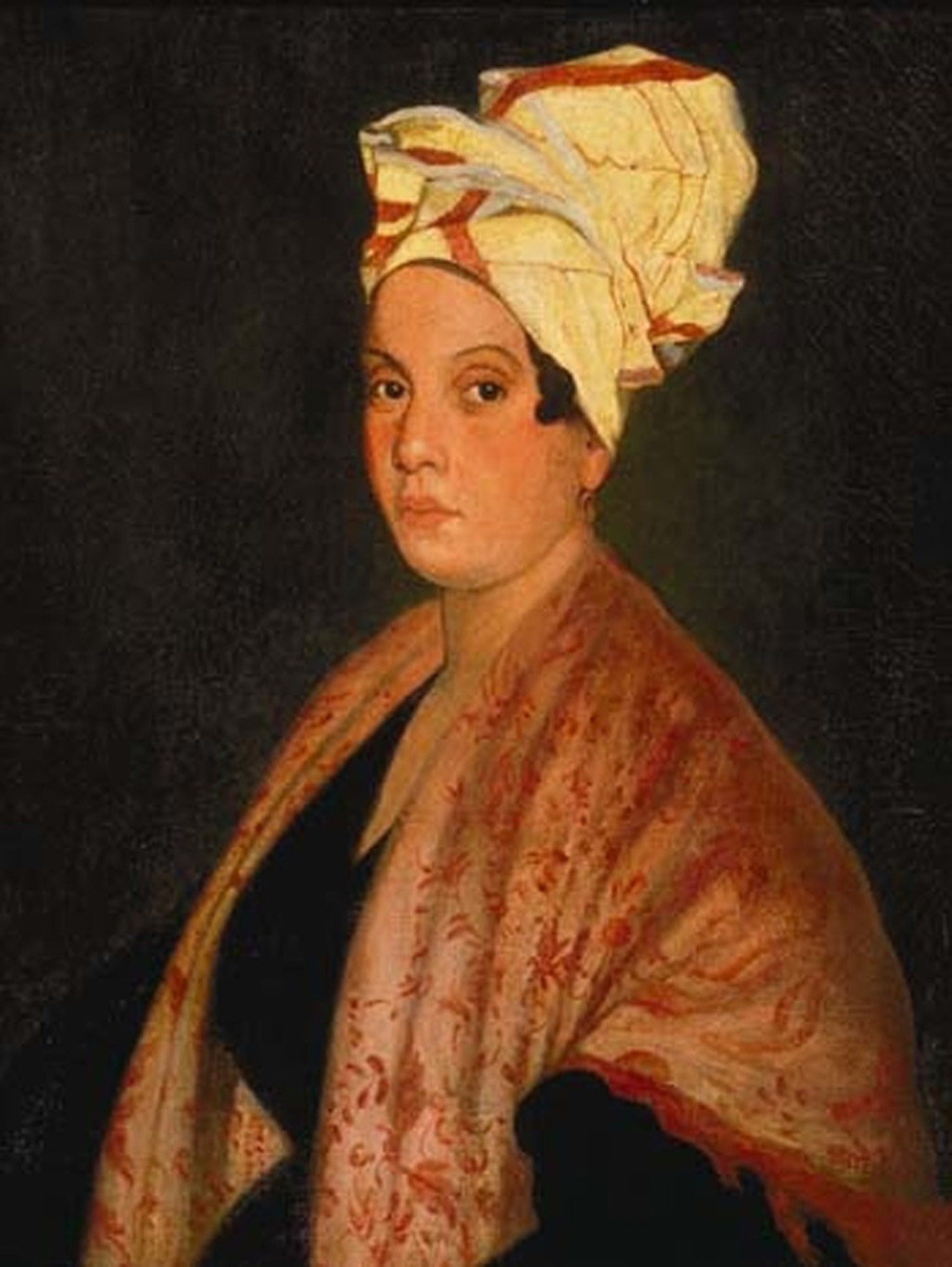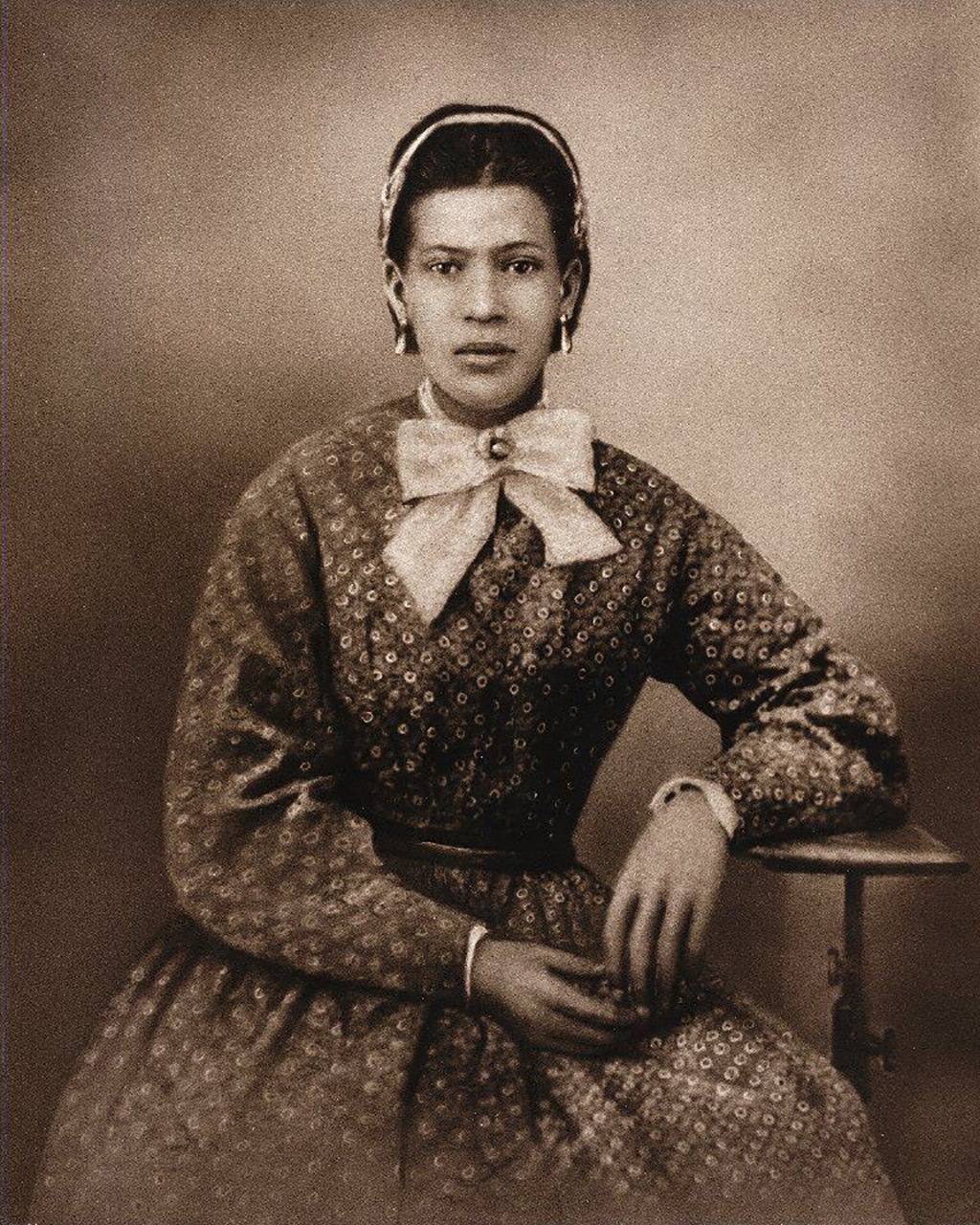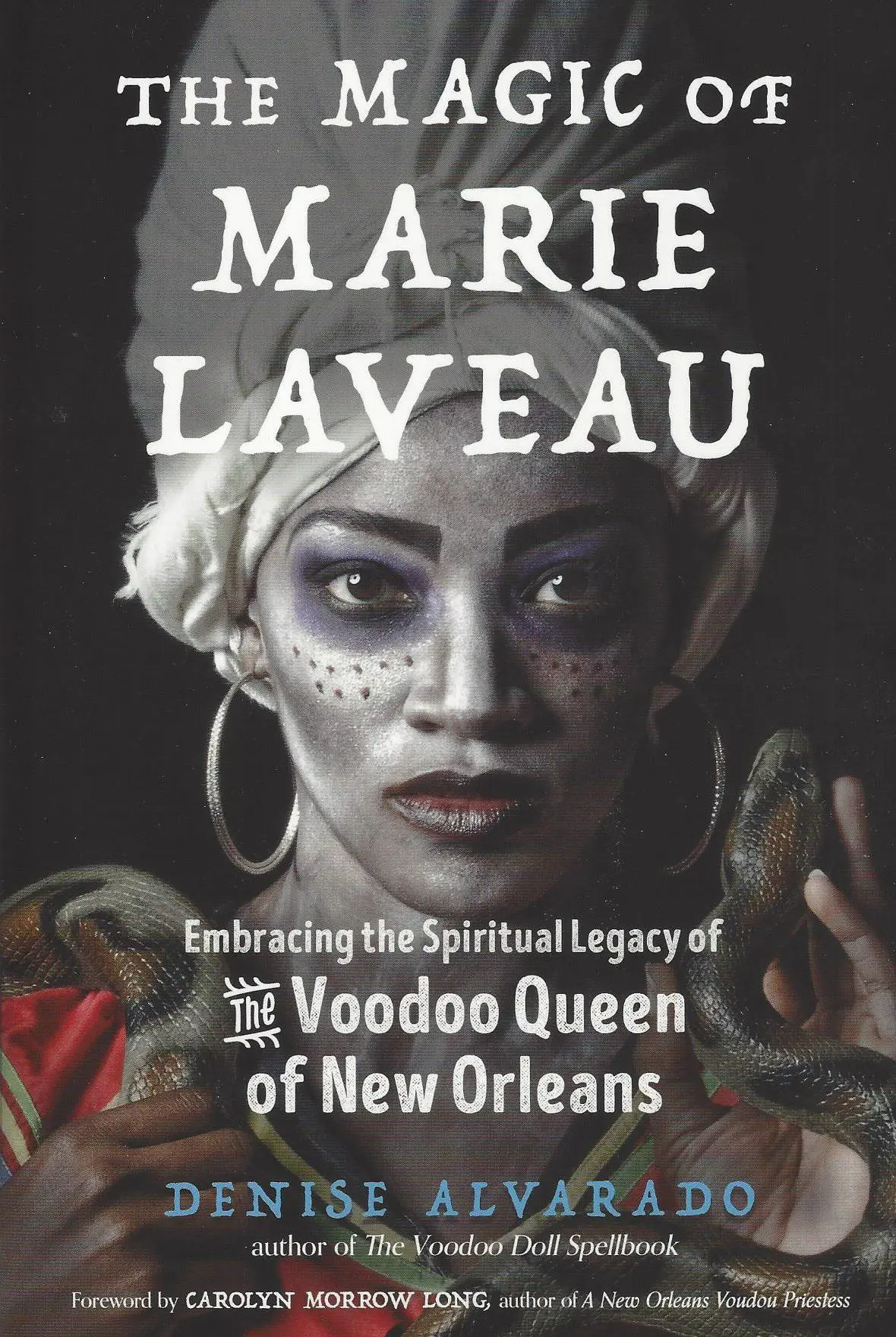Marie Laveau - New Orleans' Mysterious Vodou Queen
The story of Marie Laveau, a name that echoes through the old streets of New Orleans, is one that truly captures the imagination of so many people, even today. Born, it seems, in the early 1800s, this remarkable woman became a figure of immense importance in her home city, known to people near and far as the Vodou queen. Her presence, too it's almost, felt like a powerful force, shaping the spiritual and social fabric of a truly unique place, a place where different cultures and beliefs came together in a very special way.
Her life, you know, is a bit like a fascinating puzzle, with some pieces clearly visible and others seemingly lost to time. People talked about her extraordinary gifts, saying she could bring comfort to those who were ill or had troubles, offering a kind of solace that went beyond ordinary means. This ability, in some respects, brought her a great deal of public notice, drawing people from all walks of life to seek her guidance or perhaps just to witness her presence.
What we do know about Marie Laveau paints a picture of someone who held considerable sway, a person whose influence was felt throughout New Orleans and beyond. She commanded, in a way, a deep sense of respect and genuine admiration from a wide array of individuals, from the everyday folk to those in positions of prominence. This article aims to explore the known facts about her existence, trying to shed a little light on the woman behind the enduring tales, and why her story continues to hold such a strong appeal for so many.
Table of Contents
- Marie Laveau's Early Life and Roots
- Personal Details of Marie Laveau
- How Did Marie Laveau Gain Such Public Regard?
- The Healing Gifts of Marie Laveau
- What Made Marie Laveau a Figure of Such Power?
- The Spiritual Work of Marie Laveau
- Was There a Previous Marie Laveau, and Why Does It Matter?
- The Lasting Impact of Marie Laveau - How Does Her Story Continue?
Marie Laveau's Early Life and Roots
Marie Laveau, as the historical records suggest, came into the world in New Orleans, Louisiana, around the year 1801, though the exact birth date is, you know, a bit hazy. This city, even then, was a melting pot of cultures, a place where French, Spanish, African, and Caribbean influences blended together, creating a truly distinct atmosphere. Being born in this particular location meant she was part of a very dynamic setting, one that shaped her experiences and, perhaps, her outlook on life in a very significant way. Her passing, too, occurred in that very same city on June 15, 1881, meaning she lived a rather full life, spanning over eight decades in a place she clearly called home.
A crucial piece of her personal story is that she was born a free woman of color. This status, in the early 19th century American South, was, frankly, quite distinct and carried with it a particular set of circumstances. It meant she wasn't held in bondage, giving her a measure of independence that was not available to many others of African descent at the time. This freedom, while certainly a benefit, still placed her within a society that had strict social hierarchies, and so, her ability to rise to such prominence speaks volumes about her personal strength and perhaps her unique talents. It is that kind of background, really, that sets the stage for her remarkable life.
Her family background, while not entirely clear in every detail, seems to have been rooted in the local Creole community, which was a mix of various ethnic groups. This heritage, you know, likely exposed her to a blend of traditions and spiritual practices from a very young age. It's almost as if her environment prepared her for the role she would eventually take on, a role that would see her become a central figure in the spiritual lives of many New Orleans residents. The fact that she lived and died in the same city also suggests a deep connection to her community, a bond that, as a matter of fact, appears to have been very strong and enduring throughout her many years.
- Jack Wright
- Rage Against The Machine
- Dog Obedience Class Viral Video
- Mckenna Grace
- Low Taper Fade Straight Hair
Personal Details of Marie Laveau
To get a clearer picture of this influential figure, it helps to look at some of the basic facts that are generally accepted about her life. While much of her story is, admittedly, shrouded in mystery, some core details provide a framework for understanding who she was and when she lived. This table, in some respects, offers a quick glance at the known biographical information about Marie Laveau, giving us a starting point for exploring her remarkable existence and the legacy she left behind.
| Birth Year | 1801? (approximate) |
| Birthplace | New Orleans, Louisiana (now in the U.S.) |
| Date of Passing | June 15, 1881 |
| Place of Passing | New Orleans, Louisiana |
| Known As | The Vodou Queen of New Orleans |
| Status at Birth | Free Woman of Color |
| Reported Abilities | Healing, Spiritual Guidance |
How Did Marie Laveau Gain Such Public Regard?
Marie Laveau's rise to a position of such widespread public regard and admiration is, honestly, a truly fascinating aspect of her story. She didn't just appear as the Vodou queen; her status grew over time, built upon a foundation of genuine interaction with the people of New Orleans. It appears she earned her reputation through a combination of practical community support and her deeply felt spiritual work. This dual approach, you know, allowed her to connect with individuals on multiple levels, addressing both their immediate, everyday needs and their deeper, more intangible concerns, which is a pretty powerful combination for anyone to possess.
Her activities extended beyond what one might typically expect from a spiritual leader. She was, in fact, involved in acts of community service, which suggests a hands-on approach to helping those around her. This practical assistance, whatever form it took, would have built trust and goodwill among the local population. When people see someone actively working to better their lives, it creates a bond, and that, too, is a very real source of influence. It's almost as if her actions spoke louder than any words, demonstrating a commitment to the well-being of her neighbors.
The stories of her abilities, particularly those related to healing, also played a significant part in her growing fame. People, naturally, seek comfort and relief when they are suffering, and if someone is seen as consistently providing that, word travels quickly. Her reputation, in some respects, spread far and wide, reaching beyond the immediate confines of her neighborhood. This kind of organic, word-of-mouth recognition, as a matter of fact, is often the most powerful, as it comes from personal experiences and shared testimonials, building a truly strong foundation for her widespread renown.
The Healing Gifts of Marie Laveau
Among the many things Marie Laveau was known for, her purported ability to bring about healing stands out quite prominently. This wasn't just about offering a quick fix; it seems to have involved a deeper process of restoring comfort and balance to those who were suffering. In a time when formal medical care might have been scarce or inaccessible for many, particularly for people of color, someone who could offer remedies or spiritual solace for physical ailments would have been seen as an incredibly valuable resource. Her methods, of course, would have been rooted in the traditions she practiced, likely involving herbal knowledge, spiritual rituals, and perhaps a deep understanding of human nature and comfort.
People, really, would have come to her seeking relief from all sorts of troubles, not just those of the body, but also those of the mind and spirit. The idea that she could "heal" might have encompassed a range of interventions, from providing soothing poultices to offering guidance that helped people cope with their difficulties. This kind of comprehensive approach to well-being, you know, would have made her a central figure for many in their times of need. It suggests a very compassionate side to her character, someone who genuinely cared about alleviating the distress of others, which is, frankly, a very human quality.
The accounts of her healing powers, while perhaps shrouded in the mists of folklore, point to a person who offered a genuine sense of hope. For those facing illness or personal hardship, the belief that someone possessed an extraordinary ability to help could be incredibly empowering. This trust, in some respects, would have fostered a strong connection between Marie Laveau and the community she served. It's almost as if her very presence brought a kind of reassurance, a feeling that things could, perhaps, get better, and that, too, is a powerful form of healing in itself, extending beyond just the physical.
What Made Marie Laveau a Figure of Such Power?
Marie Laveau's reputation as a figure of immense power in New Orleans was, quite simply, undeniable. It wasn't just about being known; it was about commanding a deep respect and admiration from a wide variety of people, from the ordinary citizens to those in more influential positions. This kind of influence, you know, doesn't happen by chance; it's built upon a combination of perceived abilities, consistent actions, and perhaps a truly magnetic personality. She possessed, in a way, an extraordinary ability to influence things beyond the ordinary, which captivated the minds of many who encountered her or heard tales of her deeds.
Her renown, people said, spread far and wide, like ripples in a pond, reaching communities both near and far from her New Orleans home. This widespread recognition was, apparently, tied to her "fabulous supernatural power," a phrase that suggests a public perception of her having abilities that transcended typical human capabilities. Whether these powers were seen as mystical, spiritual, or simply a profound understanding of human nature and the world around her, they certainly contributed to her elevated status. It's that kind of reputation, really, that makes a person legendary, allowing their story to be told and retold across generations.
The fact that she was called the "Vodou queen of New Orleans" is, frankly, a testament to her standing within the spiritual practices of the city. This title implies not just leadership, but a central, authoritative role in a system of beliefs that was very important to a significant portion of the population. To hold such a position meant she was seen as a guide, a protector, and a source of wisdom. This kind of spiritual authority, in some respects, gave her a unique kind of power, allowing her to shape opinions and offer direction in a way that few others could, making her a truly formidable figure in her time.
The Spiritual Work of Marie Laveau
Marie Laveau's spiritual work was, without a doubt, a cornerstone of her public identity and the source of much of her influence. She became known as the Vodou queen through her engagement with the spiritual practices that were deeply ingrained in the cultural fabric of New Orleans. This wasn't just a casual involvement; it appears she was a powerful leader within a specific form of West African Dahomean religion that found its unique expression in the city. This connection to an ancestral spiritual tradition, you know, would have given her a deep well of knowledge and authority to draw upon, making her guidance truly meaningful to those who sought it.
Her spiritual activities, it seems, involved more than just individual consultations; they contributed to her overall reputation as a figure who could command respect and admiration. The "spiritual" aspect of her work, as mentioned in the old accounts, was a key component of how she became so well-known during her lifetime. This suggests that her practices, whatever their specific nature, resonated deeply with the beliefs and needs of the community. It's almost as if she provided a vital connection to the unseen world, offering a sense of order and purpose in people's lives, which is a very powerful service to provide.
The reverence people had for her spiritual gifts meant that her words and actions carried considerable weight. She was, in a way, a spiritual anchor for many, offering comfort, advice, and a pathway to understanding complex issues through a spiritual lens. This kind of role, frankly, requires a deep understanding of human nature and a genuine connection to the spiritual traditions she upheld. Her ability to navigate these spiritual currents and guide others through them was, undoubtedly, a significant factor in her enduring legacy and why, even today, her name is so closely tied to the spiritual history of New Orleans.
Was There a Previous Marie Laveau, and Why Does It Matter?
One of the more intriguing aspects of the Marie Laveau story is the suggestion that there might have been more than one prominent figure bearing that name. Historical accounts mention "the first Marie Laveau," who, it seems, was born around 1783. This earlier individual, too, reportedly built a reputation as a powerful leader within the particular form of West African Dahomean religion that had developed in New Orleans. This detail is, honestly, quite important because it adds a layer of complexity to the narrative and helps explain some of the mystery surrounding the later Marie Laveau, the one born in 1801.
The existence of an earlier, influential Marie Laveau raises some interesting questions. Was the more famous Marie Laveau, born in 1801, perhaps a successor, a relative, or someone who simply carried on a similar spiritual tradition? The "my text" information implies a distinction, referring to "the first Marie Laveau" as a separate entity. This could mean that the title of "Vodou Queen" was passed down, or that the later Marie Laveau simply rose to prominence in a similar way, perhaps even building upon the foundation laid by her predecessor. It's that kind of historical nuance, really, that makes the story even more captivating, as it hints at a lineage of powerful spiritual leaders.
Understanding this potential succession or parallel influence is, in some respects, quite important for piecing together the full scope of Marie Laveau's impact. It suggests that the spiritual practices she was known for were not isolated to one individual but were part of a broader, established tradition within the New Orleans community. If there were indeed multiple powerful figures named Marie Laveau, it speaks to the enduring nature of the spiritual practices and the consistent need for such leadership within the population. This context, you know, helps to explain why the story of Marie Laveau, the Vodou queen, became so deeply ingrained in the city's collective memory, as it might represent a continuous, powerful presence rather than a singular event.
The Lasting Impact of Marie Laveau - How Does Her Story Continue?
The story of Marie Laveau, even all these years later, continues to hold a truly strong grip on the imagination of people in New Orleans and beyond. She is, in a way, perhaps one of the most talked about and debated figures in the city's long and colorful history. This enduring interest means there's no shortage of people who admire her and those who, too, express doubts about the more fantastical aspects of her legend. This ongoing discussion, you know, keeps her memory alive, ensuring that her name remains a significant part of the cultural conversation, which is quite remarkable for someone who lived so long ago.
Her real story, as the records suggest, is still somewhat shrouded in mystery, which only adds to her allure. The lack of complete, definitive accounts allows for different interpretations and narratives to flourish, contributing to her status as a legendary figure. People still ask, for instance, how and why Laveau, a Black woman in a society with many limitations, managed to achieve such widespread influence and power. This question, frankly, speaks to the extraordinary nature of her accomplishments and the challenges she must have overcome to gain the respect and admiration she clearly commanded from people near and far. It's that kind of compelling question, really, that ensures her story continues to be explored and discussed.
Marie Laveau's influence, it could be said, may be among the most significant of any historical figure from New Orleans. Her impact wasn't just fleeting; it left a lasting mark on the spiritual and cultural landscape of the city. Whether through the community service she provided, the spiritual guidance she offered, or the sheer force of her personality, she shaped perceptions and beliefs in a very profound way. Her story, in some respects, is a testament to the resilience and strength of individuals who, against many odds, manage to create a powerful legacy that resonates for generations, making her a truly unforgettable part of history, and so, her story continues to be told and retold, always with a fresh perspective.
In closing, the narrative of Marie Laveau, the Vodou queen of New Orleans, presents a compelling look at a woman who left an undeniable mark on her community. From her birth as

Marie Laveau Portrait Print Poster - Etsy

História – O Lunário

The Magic of Marie Laveau: Embracing the Spiritual Legacy of the Voodoo